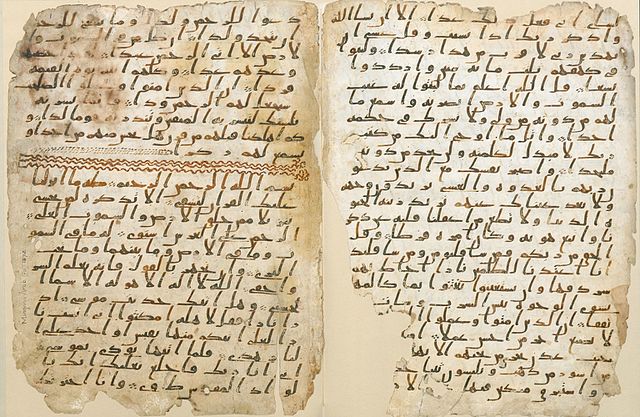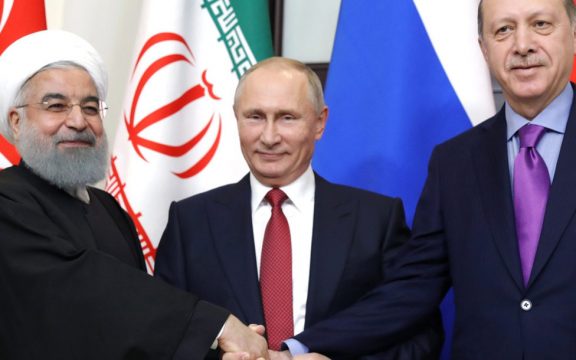One theme that is largely discussed by Muslim scholars, either in the classic or modern era is the attitude of responding verses in the Quran. Some verses are no longer appropriate to the current terms. Not to mention difficulties to overcome the words of God which are not logical and in opposition with human experience in current era.
At least there are three attitudes and approaches in facing the hermeneutical “conundrum” here.
The first attitude is called “literal approach”. This approach is totally focused and won Qur’anic verses. What the verses said must be in the frst place before any interpretation. Those verses must be followed, whatever they are. You take it or leave it, nothing in between.
The second attitude is called “progressive approach”. The approach requires re-interpretation of al-Quran by following histroical times, or current era. However the attitude never change the scripture of al-Qur’an verses, as an accusation which is alleged by the people who deny the re-interpretation of al-Qur’an). In this approach, historical time functions as “measurement”, a benchmark. While al-Qur’an comes after the context. The event, experience, historical development and impression in the current time become “meta-narratives”, the main narrative which overcome the other things.
I once followed, even enthusiastically supported the second approach. And now, despite not leaving this approach totally, I revised my perspective. Perhaps it is due to my personal view that continuously widening and intellectual journey that I continued to do. Hence I prefer to follow the third approach that will be described below.
The third approach the middle path. It does not hurry to decide that all verses in the Qur’an must be followed and held literally. But, this approach also does not rush to conclude that all verses in the Qur’an must be held with re-interpretation of the verses though illogical with the current knowledge.
The weakness of the second approach above sited on this case: it has assumed that current development and the human experience in the certain time are not as a benchmark, “meta-narrative” which overcame everything. Furthermore, the weakness of this approach is the existence of “narcissistic” nuance inside. By narcissistic here, means the perception that ourselves, the human are the centre of everything. That is an “epistemological selfishness” types indeed.
The third approach takes the other way. This middle path does not quickly conclude that the verses of al-Qur’an has to be suspected in opposition with the current development or illogical. Otherwise, “the current development” itself must be suspected.
The third approach persuades us to suspect our assumptions which are created by current development where we live. Are those assumptions have been proper and right?. Exactly this approach does not make the “current development” and “human cases” as the benchmark and “meta-narrative”. Which has to be as a benchmark here is “al-Qur’an”, because it is the center of life for Muslim.
We are as human who lives in the contextual certain, frequently suffer from two epistemological diseases, both are “bias for” and “bias against”. “Bias for” is our tendency to assume that the context of where we live is “given”, it has been already true without speculating and does not need to be suspected again. While “bias against” is the opposite tendency. It is a pre-assumption that everything which comes from the past context has already wrong, irrelevant, thus necessarily must be criticized.
What is the difference between the third approach and the first approach? Isn’t the essence of the third approach similar to the first approach? It is a literalism, pre-assumption that whatever of commanded by Allah’s decree must be literally followed?
I say “not”. There is indeed epistemological difference between both approaches. The difference concerned to where we put the epistemological primacy is and the epistemological main position are both al-Qur’an and current development.
On the first approach, al-Qur’an is the main position, with ignoring current development totally. While on the third approach, the main position is al-Quran, without ignoring current development totally. But, the third approach does not put current development as the “meta-narrative” which is the top of everything. It needs to be open to the critics, must be open to exploration and investigation.
The second approach, as I mentioned before, has a literal weakness, it is putting the human experience as “given” which does not need investigation before. While in the third paragraph, the weakness above has solved by -“subjecting human experience and all assumptions that come with it to scrutiny and investigation”-
For Muslim, the main source of discreetness is Jerusalem and Mecca. Both places became the site birth of “prophetic wisdom”; not Greece, the place where the rational system and “rational wisdom” took place. It does mean that the “rational wisdom” must be rejected, but it still must be interpreted and discussed in the light of “prophetic wisdom”.
The main point of these three approaches is “avoidance of human-centrism”. Because, as al-Qur’an has stated in its verses that -“kalla innal insana la-yathgha” (QS 96:6)- Verily, there is a tendency “thugyan” or absolutism in the human self. Therefore, we have to be careful and aware.
When Nietzsche, a famous German philosopher, declared “the death of God”, symbolizing the collapse of the absolute truth and “meta-narrative”, then starting “moral narcissism”, (the truth is what I think is right), thus the thing that will happen is not human freedom from hegemony of the single truth, but the nihilistic situation where human may be stuck in the self-absolutization and mastery of other humans which implies moral weakness.
What is the proper term for these three approaches? Probably it is preferred if we avoid giving term because the term will drag us down to the prison and the deception.
Naming is an act of labelling, and it could be deceptive.
![Islami[dot]co](https://en.islami.co/wp-content/themes/jambualas/images/logo.png)









